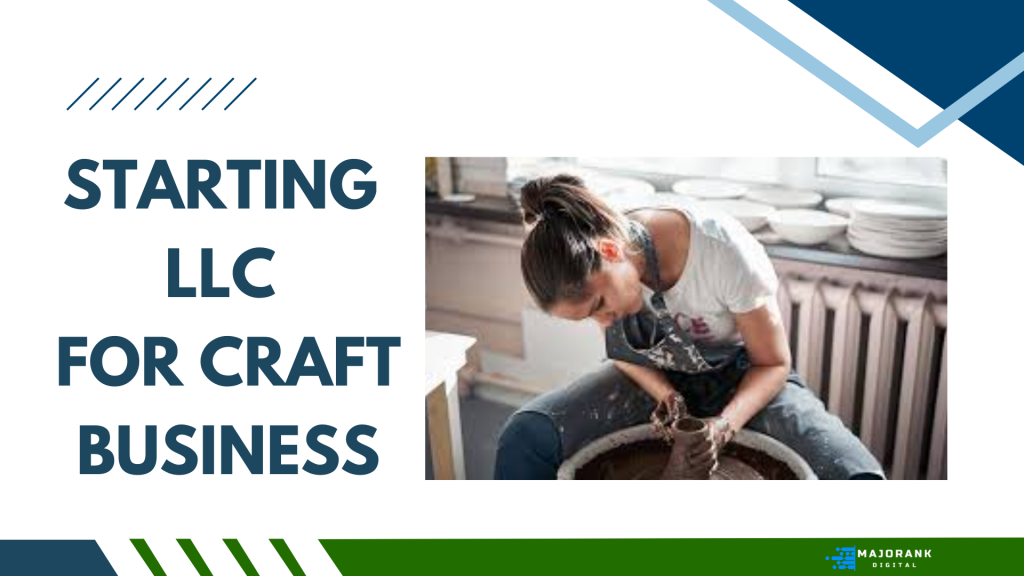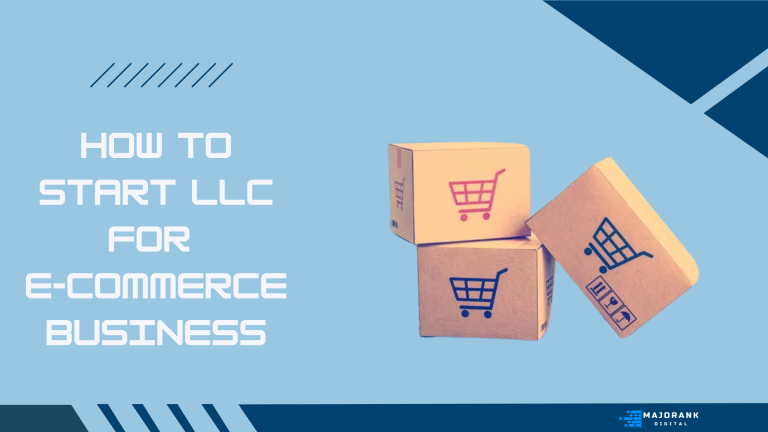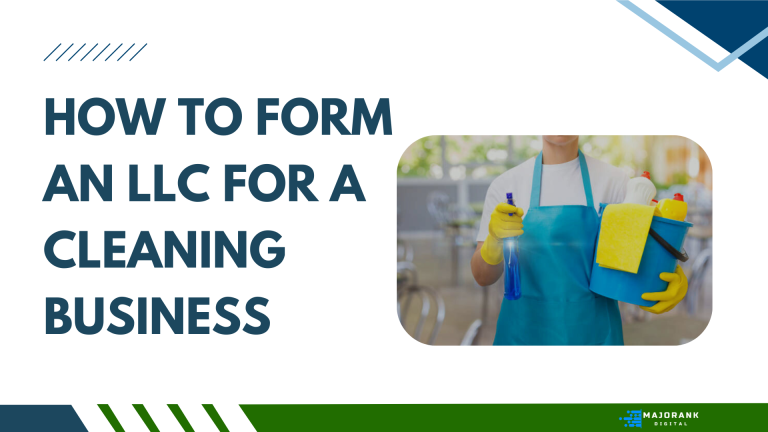
LLC for craft business helps in protecting your personal assets and establishing a solid legal foundation.
Forming an LLC for your craft business is a smart move that offers liability protection, tax benefits, and enhanced credibility.
In this guide, I’ll walk you through the essential steps to set up your LLC, ensuring your business is ready to thrive.
- Do I Need an LLC for My Craft Business?
- What are the Benefits of Starting an LLC for Craft Business?
- How to Establish an LLC for Your Craft Business?
- Can I live in a state different from my Craft business LLC?
- What is the best business structure for an LLC, sole proprietorship, or corporation for Craft business?
- FAQs
Do I Need an LLC for My Craft Business?
Starting a craft business is exciting, but it’s important to consider the legal structure. An LLC (Limited Liability Company) can be a good choice for many craft businesses.
An LLC isn’t required, though. You could operate as a sole proprietorship, which is simpler but offers less protection.
I recommend an LLC if:
- Your craft business has significant risks
- You want to grow and possibly hire employees
- You’re concerned about personal liability
For small, low-risk craft businesses, a sole proprietorship might be enough. It’s easier and cheaper to set up.
Remember, local laws can affect this decision. Some areas require certain business types to have an LLC or other formal structure.
It’s best to talk to a lawyer or accountant about your specific situation. They can help you make the right choice for your craft business.
Must Read – STARTING LLC FOR PHOTOGRAPHY BUSINESS
What are the Benefits of Starting an LLC for Craft Business?
Starting an LLC for your craft business offers key advantages. It can protect your personal assets, provide tax benefits, and boost your professional image. Let’s explore these benefits in more detail.
Personal Asset Protection
As a craft business owner, I know how important it is to protect my personal assets. An LLC creates a barrier between my business and personal finances. This means if my craft business faces legal issues or debts, my personal savings, home, and car are safe.
For example, if a customer slips and falls in my craft store, they can’t sue me personally. Only my business assets are at risk. This protection gives me peace of mind as I grow my craft business.
Pass-Through Taxation
One big perk of an LLC is pass-through taxation. This means the business itself doesn’t pay taxes. Instead, profits and losses “pass through” to my personal tax return.
I report my craft business income on my individual tax form. This can be simpler than dealing with corporate taxes. It may also lead to tax savings in some cases.
Pass-through taxation lets me avoid double taxation that corporations face. I only pay taxes once on my business income, not twice.
Enhanced Credibility and Professionalism
Adding “LLC” to my craft business name makes it sound more professional. It shows customers, suppliers, and partners that I’m serious about my business.
An LLC status can help me:
- Get better deals with suppliers
- Attract more customers
- Secure business loans more easily
- Stand out from hobby crafters
This added credibility can be a real boost, especially when I’m starting out or trying to grow my craft business.
Protection of Your Business Name
When I form an LLC, I register my craft business name with the state. This stops other businesses in my state from using the same name.
Name protection is important for building my brand. It helps avoid confusion with other craft businesses. It also makes it easier for customers to find and remember me.
This name protection is a valuable asset for my craft business’s identity and growth.
Operational Simplicity and Flexibility
LLCs offer a simple business structure with fewer rules than corporations. This flexibility is great for my craft business. I can choose how I want to manage my company.
This flexibility lets me focus on creating and selling my crafts instead of dealing with complex business rules.
Potential for Additional Business Entities
As my craft business grows, an LLC structure allows for expansion. I can create multiple LLCs under one parent company. This is useful if I want to separate different product lines or open new locations.
For example, I could have:
- One LLC for my online craft store
- Another for my physical shop
- A third for a craft workshop business
This setup can help manage risk and organize my growing craft empire. It gives me room to expand while keeping each part of my business separate and protected.
How to Establish an LLC for Your Craft Business?
Setting up an LLC for your craft business involves several key steps. These include choosing a state, picking a name, and completing necessary paperwork. Let’s walk through each part of the process.
1. Choose a State to Register LLC for your Craft Business
I recommend registering your LLC in the state where you’ll run your craft business. This keeps things simple and often costs less. Some states have lower fees or taxes, but registering there can mean extra paperwork and costs if you operate elsewhere.
Consider factors like:
- Filing fees
- Annual report requirements
- State taxes
- Your business location
For most small craft businesses, the home state is the best choice. But if you plan to expand quickly, look into business-friendly states like Delaware or Wyoming.
2. Choose an LLC Name
Picking a name for your craft business LLC is fun but needs careful thought. Your name must be unique in your state and include “LLC” or “Limited Liability Company.”
Here’s what to do:
- Brainstorm names that fit your craft niche
- Check availability on your state’s business registry website
- Search for trademarks to avoid conflicts
- See if the domain name is available for your website
I suggest making a list of 3-5 names you like. This gives you backup options if your top choice isn’t available.
3. Appoint a Registered Agent
A registered agent receives legal papers for your LLC. This can be you, another LLC member, or a professional service. They must have a physical address in your state and be available during business hours.
Benefits of using a professional service:
- Privacy (your home address isn’t public)
- Reliable document handling
- Coverage if you’re out of town
I often recommend using a service for new business owners. It’s affordable and gives peace of mind.
In the past, I have used NorthWest registered agent services for my LLC but currently using Tailor Brands registered agent. I can always recommend both as they are good at what they do couple with their fee too, they offer a low fee to compare with other LLC registered agent out there.
4. File Articles of Organization
This step makes your LLC official. You’ll submit forms to your state’s business office, usually online. The exact name may vary by state, but it’s often called Articles of Organization.
You’ll need to provide:
- LLC name
- Business address
- Registered agent info
- Management structure
- Member names (sometimes)
Fees vary by state, typically $50 to $500. Processing time can be a few days to weeks. Some states offer expedited service for an extra fee.
5. Obtain an Employer Identification Number (EIN)
An EIN is like a Social Security number for your business. It’s free to get from the IRS website and usually instant. You’ll need this to:
- Open a business bank account
- File taxes
- Hire employees
Even if you’re the only member of your LLC, I recommend getting an EIN. It adds professionalism and keeps your personal and business finances separate.
6. Create an Operating Agreement (Optional)
Most states don’t require an operating agreement, but I strongly suggest having one. This document outlines how your LLC will run, including:
- Member roles and responsibilities
- Profit sharing
- Decision-making processes
- What happens if a member leaves
For single-member LLCs, it might seem unnecessary. But it can be helpful if you ever want to add members or sell your business.
7. Open a Business Bank Account
Keeping your craft business finances separate from personal ones is crucial. It makes accounting easier and strengthens your LLC’s liability protection.
To open an account, you’ll need:
- EIN
- Articles of Organization
- Photo ID
I suggest talking to a few banks to find the best fit for your craft business needs.
8. Register for Taxes and Licenses for Your Craft Business
The final step is making sure you’re compliant with tax and licensing rules. This varies based on your location and type of craft business.
Common requirements include:
- State tax registration
- Sales tax permit
- Home occupation permit
- Professional licenses (for certain crafts)
Check with your local small business office or chamber of commerce. They often have resources to help you navigate these requirements.
Remember, staying compliant from the start saves headaches later. It’s worth taking the time to get everything in order.
Can I live in a state different from my Craft business LLC?
Yes, you can live in a different state from where your craft business LLC is registered. This is a common scenario for many business owners.
To do this, you’ll need to register your LLC as a “foreign” entity in the state where you’re operating. This doesn’t mean international – it just means your business is from another state.
You’ll need to:
- Choose a registered agent in the LLC’s state
- File for foreign qualification in your home state
- Pay required fees and taxes in both states
Keep in mind, this can be more complex and costly than having your LLC in your home state. You’ll deal with two sets of regulations and tax requirements.
der to open bank accounts or get loans. You might also face extra paperwork and compliance issues.
What is the best business structure for an LLC, sole proprietorship, or corporation for Craft business?
For a craft business, I recommend an LLC as the best structure in most cases. It offers several key advantages:
Limited Liability Protection: An LLC shields my personal assets from business debts and lawsuits. This is crucial for a craft business where product liability could be a concern.
Tax Flexibility: I can choose how the LLC is taxed – either as a sole proprietorship (pass-through) or corporation. This allows me to optimize my tax situation.
Simple Setup and Maintenance: Compared to a corporation, an LLC has less paperwork and fewer ongoing requirements. This saves me time and money.
Professional Image: An LLC appears more established than a sole proprietorship, which can help attract customers and partners.
While a sole proprietorship is the easiest to set up, it offers no liability protection. This is risky for a craft business selling products to consumers.
A corporation provides strong liability protection but has complex requirements and double taxation in many cases. For most small craft businesses, this structure is overkill.
I’d only consider a corporation if I plan to seek significant outside investment or have a large, complex operation.
In summary, an LLC strikes the right balance for most craft businesses – offering liability protection and tax benefits without excessive complexity.
FAQs
What are the steps to establish an LLC for a home-based craft business?
To set up an LLC for a home-based craft business, I first choose a business name and check its availability. Then I file Articles of Organization with my state. Next, I get an EIN from the IRS for tax purposes. I also create an operating agreement outlining how my LLC will run.
What is the process for creating an LLC for a craft business with limited funds?
With limited funds, I can still form an LLC for my craft business. I start by handling the paperwork myself instead of hiring a lawyer. Many states offer online filing options, which are cheaper than paper forms. I also look for free resources and templates for creating an operating agreement.
Is forming an LLC the best choice for a craft business startup?
An LLC can be a good choice for a craft business startup. It offers personal asset protection and tax flexibility. LLCs are simpler to manage than corporations. They also allow for multiple owners if I want to bring on partners. But the best choice depends on my specific situation. I consider factors like my business goals, tax needs, and growth plans.
What legal considerations are there when starting a craft business?
When starting a craft business, I need to think about trademark and copyright issues. I make sure my designs and products don’t infringe on others’ rights. I also look into product liability insurance. This protects me if someone gets hurt using my crafts. Local zoning laws are important too, especially if I’m running the business from home.
How do I manage an LLC for a craft business operating primarily online?
For an online craft business LLC, I focus on digital record-keeping and e-commerce compliance. I use accounting software to track income and expenses. I make sure my website follows online business regulations. This includes having clear privacy policies and terms of service. I also stay up-to-date on sales tax rules for online sellers in different states.
What are the requirements for setting up an LLC for a craft business in different states?
LLC requirements vary by state. Generally, I need to file formation documents and pay a fee. Some states require publication of a notice in local newspapers. Annual reports and fees are common in many states. Some may require a registered agent with a physical address in the state.






